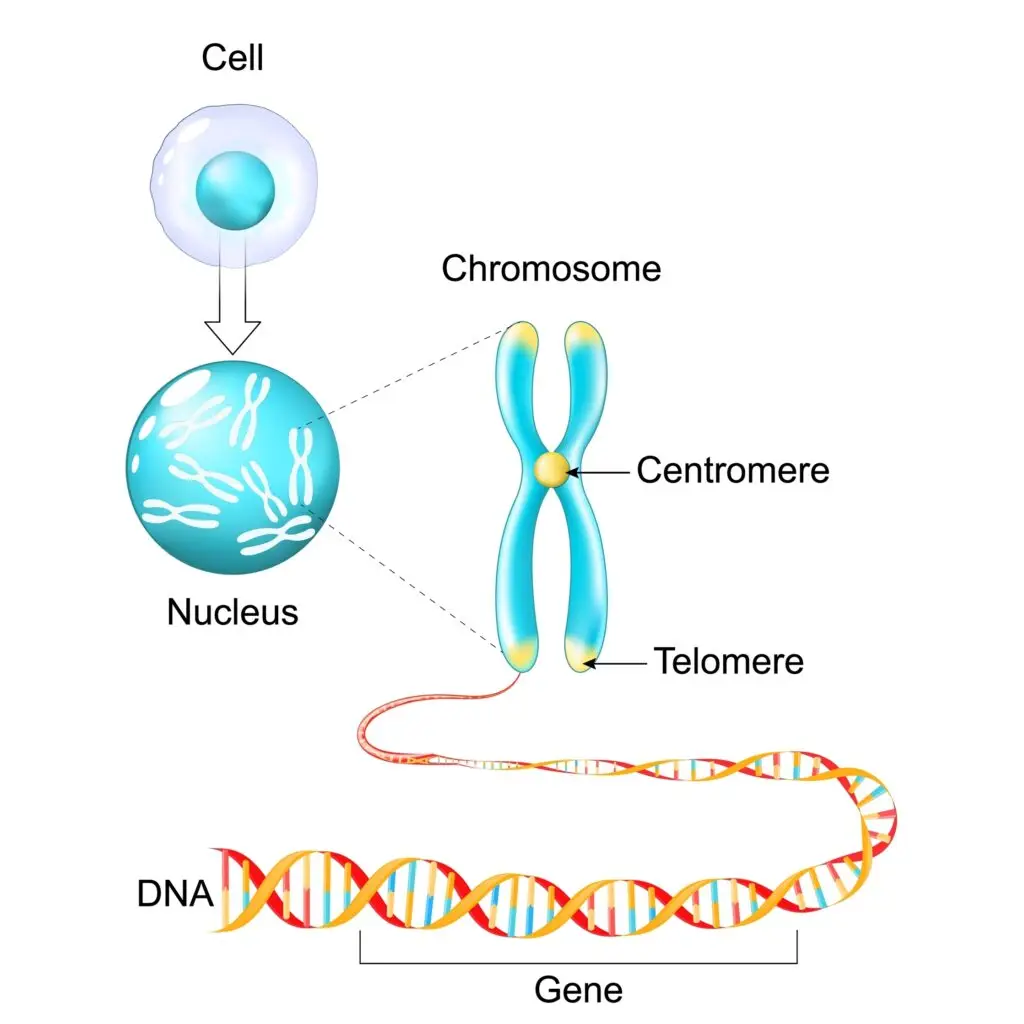Chromosome
What is a Chromosome?
A chromosome is a thread-like structure made of DNA and proteins, located in the cell nucleus. Chromosomes organize and carry genetic information, and each species has a specific number of chromosomes that hold the instructions for its development and function.
The Cell’s Library
Chromosomes are like libraries inside the cell. They store all the genetic instructions needed for the cell to function and grow. Each chromosome is made of tightly packed DNA, which carries genes that determine traits like hair color or height. In humans, most cells have 46 chromosomes, arranged in 23 pairs. During cell division, chromosomes ensure that each new cell gets a complete set of genetic information. Without them, cells couldn’t pass on the instructions needed for life.
How Chromosomes Work in Inheritance
Chromosomes are key to how traits are passed from parents to offspring. Each parent contributes one set of chromosomes, combining to form a unique genetic blueprint. This mix determines traits like eye color or susceptibility to certain diseases. Sometimes, small changes in chromosomes can cause genetic conditions. By studying chromosomes, scientists learn more about heredity and how genes shape who we are.
Chromosomes and Cell Division
During cell division, chromosomes play an important role in ensuring accuracy. Before a cell splits, chromosomes duplicate so that each new cell gets a complete copy of the genetic material. This process happens in two main types of division: mitosis and meiosis. Mitosis helps cells grow and repair, while meiosis creates gametes (sperm and eggs). Chromosome alignment during division ensures the proper distribution of DNA, reducing the chance of errors.
The Role of Chromosomes in Evolution
Chromosomes drive changes over generations, making them key players in evolution. Mutations in chromosomes can lead to new traits that may help organisms adapt to their environment. Over time, these changes can create new species. Chromosomes also help scientists trace evolutionary relationships between organisms. By comparing chromosome structures, researchers learn how different species are connected and how life has evolved over millions of years.
Chromosomal Disorders and Health
Problems with chromosomes can lead to health conditions. For example, having an extra chromosome 21 causes Down syndrome, a condition that affects development. Missing or rearranged chromosomes can also cause issues, like infertility or developmental delays. Scientists use genetic testing to study chromosomes and detect these disorders early. This research helps doctors create better treatments and support for individuals with chromosomal abnormalities.
